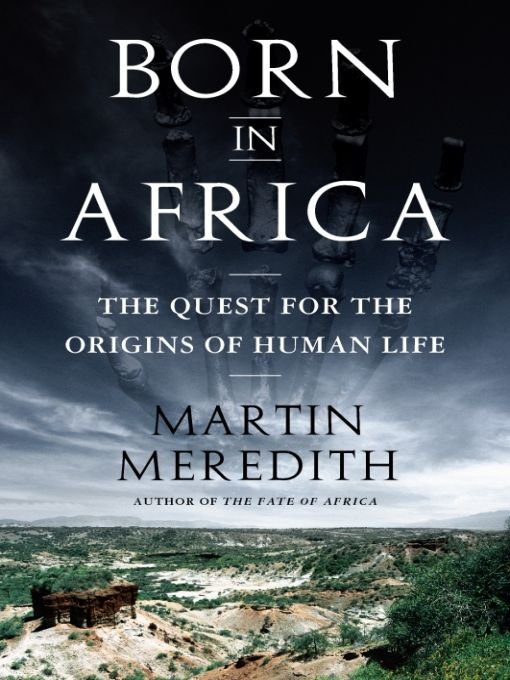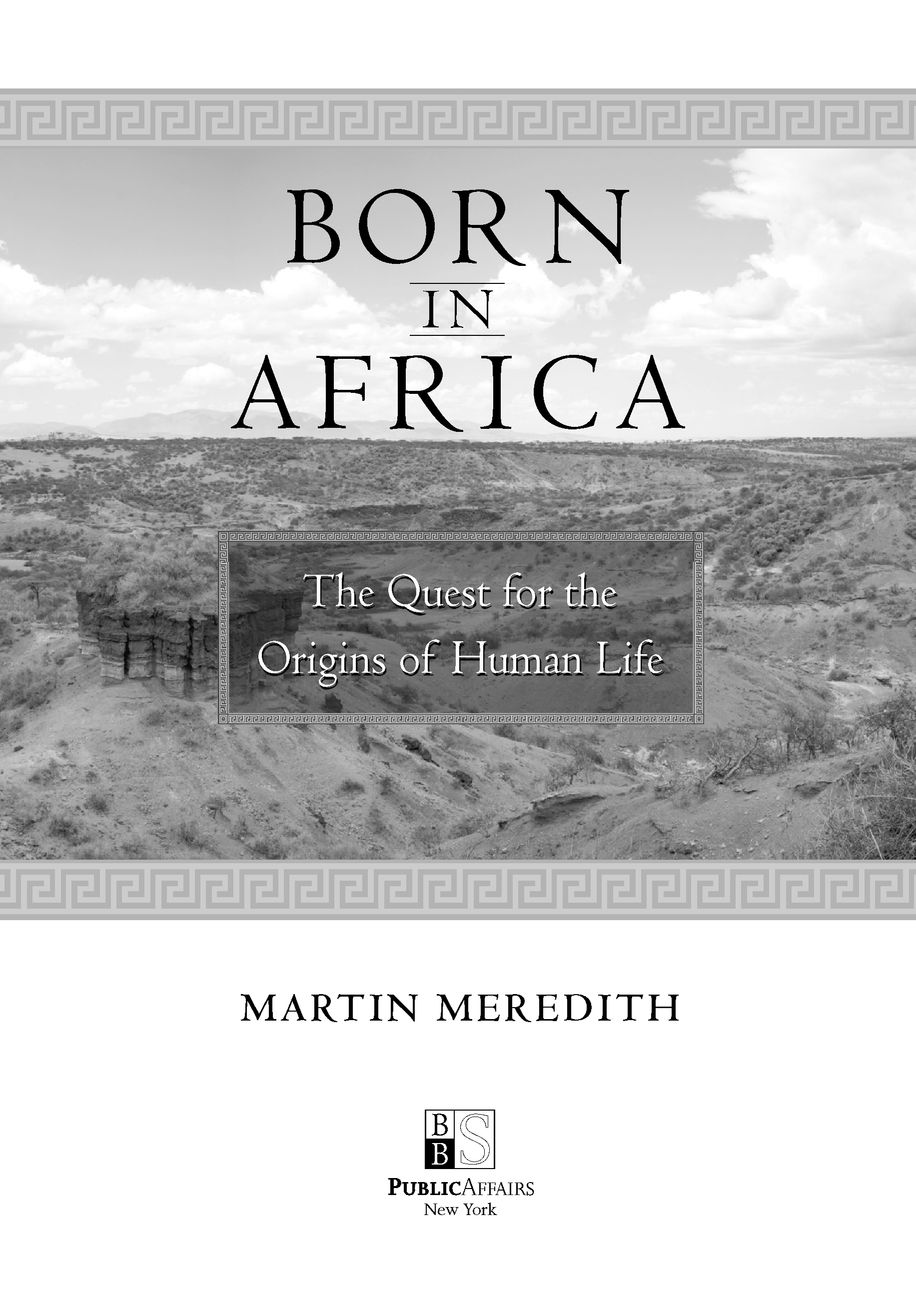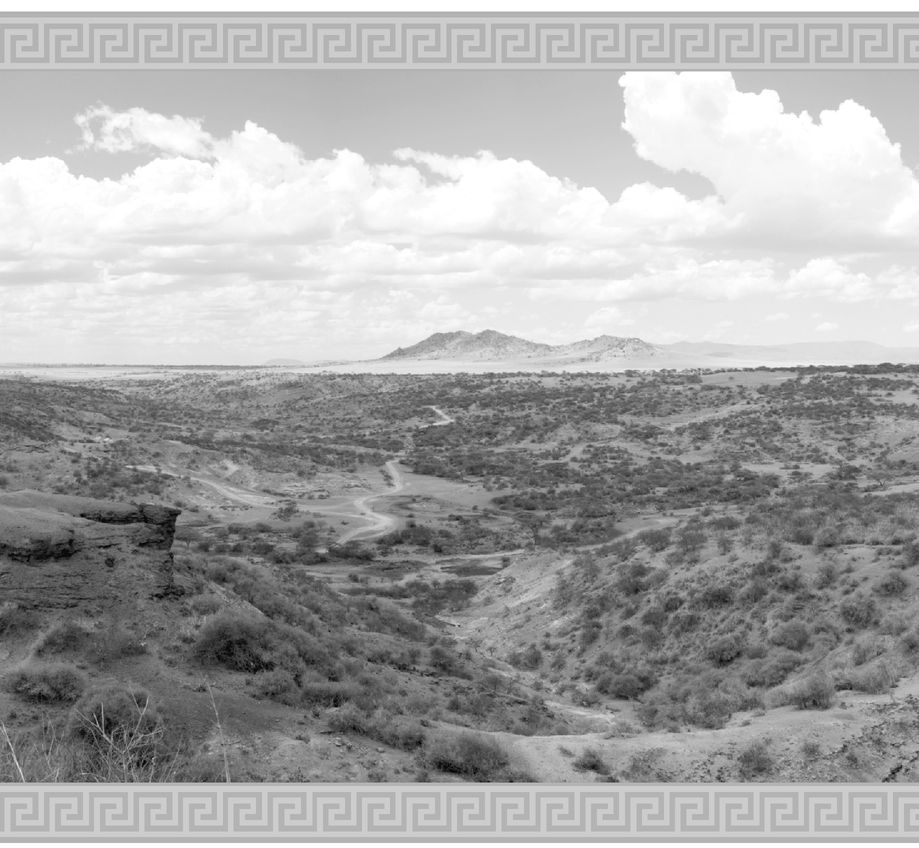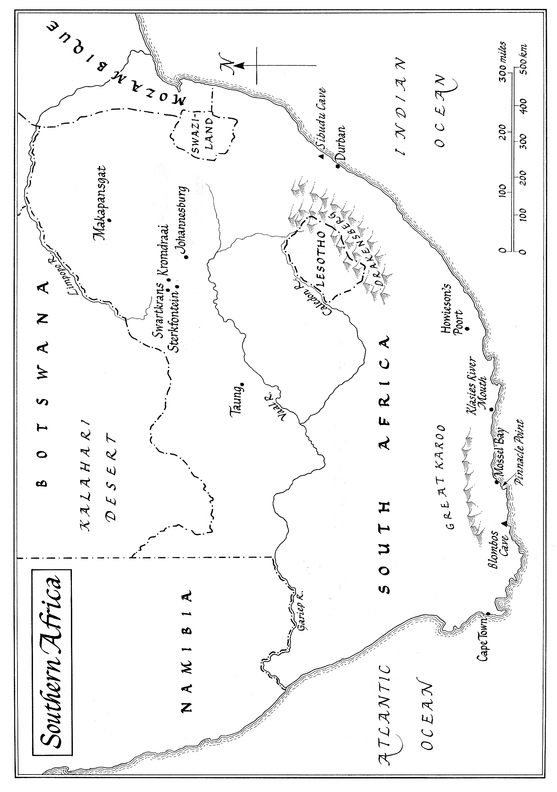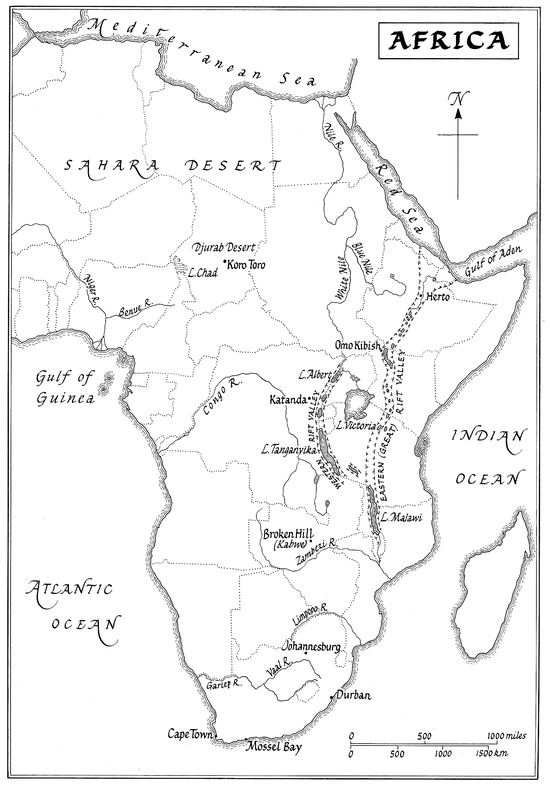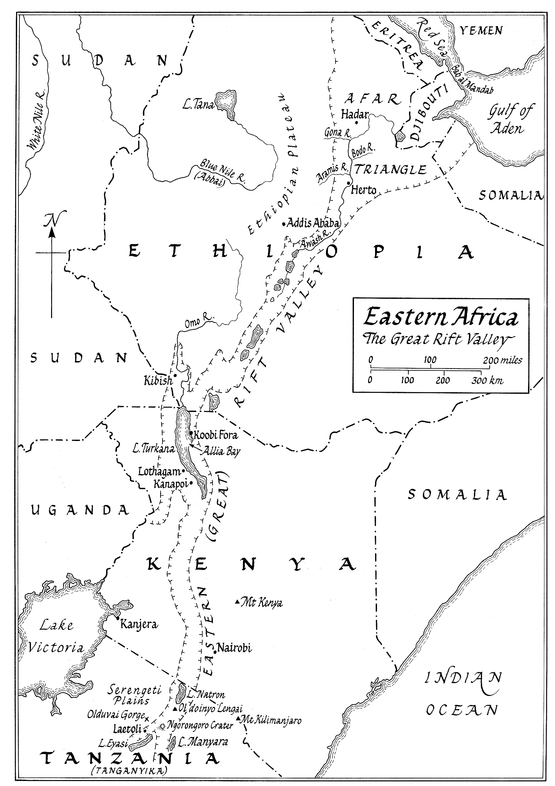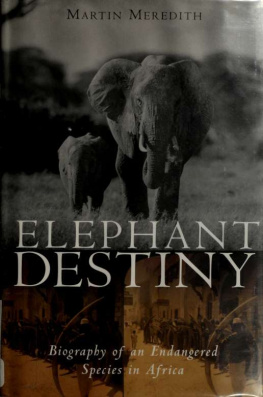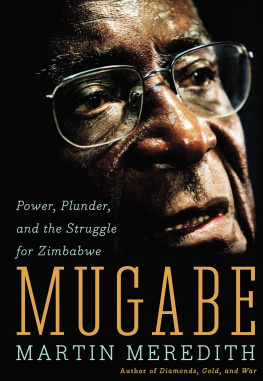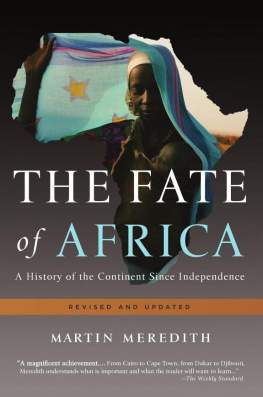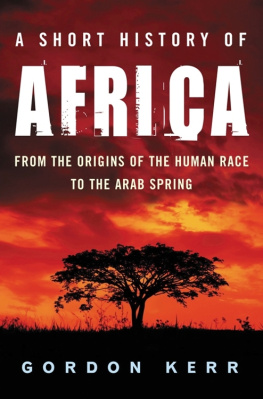Table of Contents
We carry within us the wonders we seek without us: there is all Africa and her prodigies in us.
SIR THOMAS BROWNE
Religio Medici (1643)
Preface
Africa does not give up its secrets easily. Buried there lie answers to our questions about the origins of humankind. After a century of investigation, scientists have transformed our understanding of the beginnings of human life. Many remarkable discoveries have been made. Yet even as the evidence about human evolution has continued to grow, so the riddle has become ever more complex. And ultimate clues still remain hidden.
This book follows the endeavours of scientists striving to uncover the mysteries of human origins over the past 100 years. The obstacles they faced have been formidable. Some 7 million years have passed since the precursors of humankind began to evolve in Africa. The only signs of their existence are fossil remains concealed in a landscape that has changed dramatically in that time. Whole parts of the continent have been raised by tectonic upheavals; mountains have been thrust upwards; lakes and rivers have come and gone; erupting volcanoes have covered great swathes of land under layers of lava and ash.
The route back to this ancient world has been marked by misfortune, false hopes, fraud and extraordinary feats of skill and endurance. The early stages of the quest were dominated by a handful of ambitious individuals, obsessed by their work and driven by hopes of fame and glory. Their goal was to find the oldest human ancestor. Each discovery they made was acclaimed as having iconic significance. From the outset, however, the science of palaeoanthropology has been renowned not just for the exploits of researchers in the field but for their intense rivalry, personal feuds and fierce controversies. One field scientist observed ruefully in his memoirs how the profession was plagued by treachery, cutthroat competition and backstabbing.
In more recent times, a host of other scientistsmolecular biologists, biochemists, geneticists, palaeoclimatologists, geochronologistshave played an increasingly influential role in this giant detective saga. The focus of attention has broadened to include the search for the origins of modern humans as well as human ancestors. New controversies have erupted. Rival schools of thought have fought each other as tenaciously as in the past.
The results of the quest have been momentous. Scientists have identified more than twenty species of extinct humans. They have firmly established Africa as the birthplace not only of humankind but also of modern humans. They have revealed how early technology, language ability and artistic endeavour all originated in Africa; and they have shown how small groups of Africans, possessing new skills, spread out from Africa in an exodus 60,000 years ago to populate the rest of the world.
We have all inherited an African past.
The first part of this book focuses upon the exploits of key field scientists, starting with the pioneer researchers of the early twentieth century. Their task was not only to find significant fossilsthe principal evidence of human evolutionbut to convince a sceptical scientific establishment of the importance of their discoveries. Some fossil finds remained in dispute for years. Modern researchers pushing back the frontier of human origins to 7 million years ago have encountered similar hurdles.
The second part of the book opens at that primordial frontier and moves forward along the trail of discoveries leading to the emergence of our own species, Homo sapiens, and its gradual migration around the world. What stands out is not only the remarkable range of scientific discoveries that have been made but the extent of the vast hinterland that remains to be discovered.
Introduction
While working on his revolutionary theories about evolution, the naturalist Charles Darwin concluded that the most likely birthplace of humankind was Africa, since it was the homeland of gorillas and chimpanzees, apes which he deemed to be our closest living relatives. Humans and apes, said Darwin, had probably shared a common ancestor in Africa.
In each great region of the world, he wrote in The Descent of Man, published in 1871, the living mammals are closely related to the extinct species of the same region. It is therefore probable that Africa was formerly inhabited by extinct apes closely allied to the gorilla and chimpanzee; and as these two species are now mans nearest allies, it is somewhat more probable that our early progenitors lived on the African continent than elsewhere.
The idea that humans were related to an African ape caused uproar in Victorian England. Descended from the apes! exclaimed a bishops wife to her husband. My dear, let us hope that it is not true, but if it is let us pray that it will not become generally known.
The Victorian era was accustomed to Christian doctrines about life on earth that regarded humans as unique, a special creation separate from the rest of the animal world, made in the image of God and given dominion over nature. What the public found so offensive was not the general theory of evolution that Darwin propounded. Geologists had already shown that the earth was far older than allowed for in the Book of Genesis and that it had changed significantly over a vast period of time. Archaeologists had found stone tools alongside extinct animals from the Ice Ages indicating that humans, too, had been on earth for far longer than the 6,000 years laid down by biblical chronology.
Victorian society was ready to accept the idea of a changing world. Evolution could be seen as the gradual unfolding of a divine plan. It represented progressthe constant improvement of form and functiona subject of immense appeal to Victorian audiences. Humans, standing atop the ladder of evolution, were clearly lifes supreme refinement. Indeed, evolution, it was said, had been planned by a wise and benevolent God to result in human life. Darwins theory of common descentthe proposition that all living things were descended from a common ancestrywas swiftly accepted.
Other aspects of Darwins explanations about life on earth, however, caused endless trouble, not only with the public but among the scientific community. Evolution, Darwin maintained, did not rely on any supernatural power. It was governed solely by the response of a species to its physical and biological environment. Every species produced more offspring than could survive from generation to generation. In the struggle for existence, said Darwin, it was those individuals best able to adapt to the demands of the prevailing environmentthe fittestthat would survive. The traits or variations that enabled them to adapt would be more prevalent in the next generation. Adaptation was thus the driving force behind evolution. By a process of natural selection, the less fit were eliminated. Common descent with modification was the framework for understanding the history of life. Over an immense period of time, infinitesimal changes wrought by the struggle for survival had led to the evolution of species. This process of natural selection applied to all life on earthincluding humans. Darwin treated humankind as just one species among all others, moulded by the same evolutionary forces.

